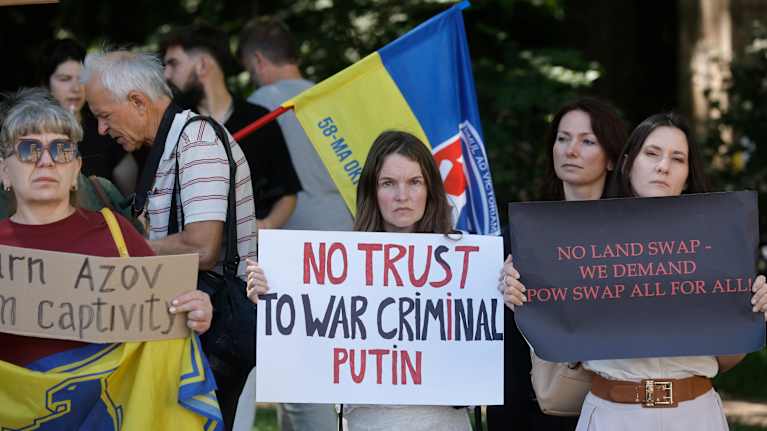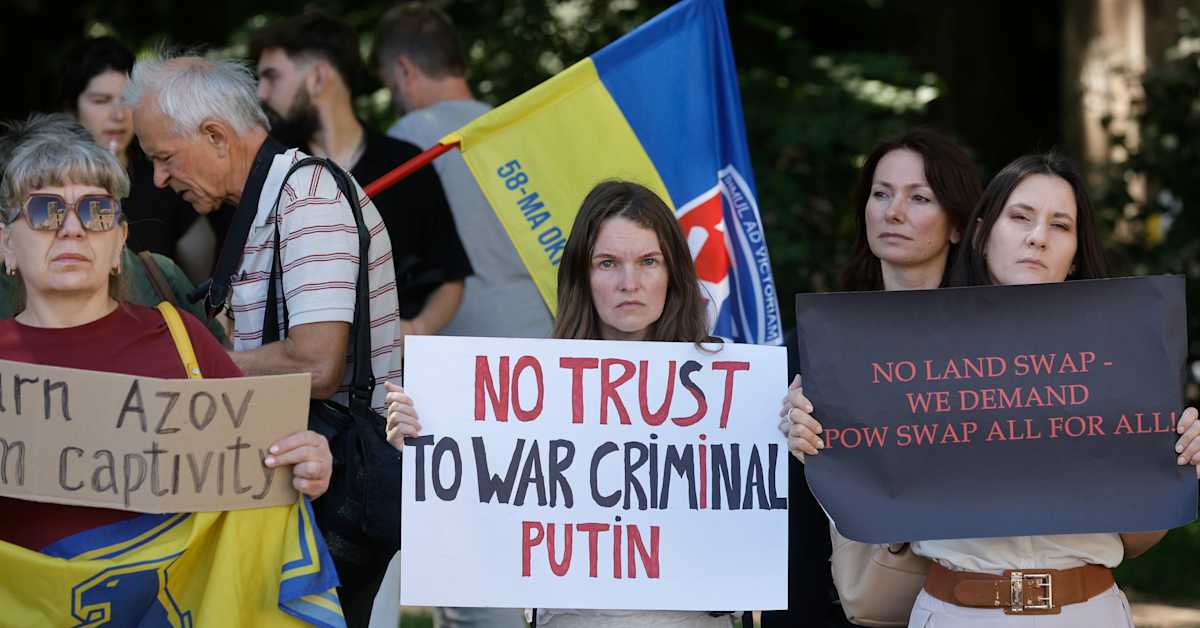“Russia’s aggression and imperialist ambitions are the root causes” of Europe’s bloodiest conflict since the Second World War, according to the strongly worded statement issued amid a string of key meetings.

Open image viewer
Protesters held a vigil in front of the US embassy in Kyiv on Friday. Image: EPA
Finland has joined the Nordic-Baltic Eight nations in a joint statement supporting Ukraine’s sovereignty and a just end to Russia’s full-scale war.
“We remain steadfast in our support to Ukraine and to efforts, including by President Trump, to end the Russian war of aggression against Ukraine,” reads the joint statement, issued on Saturday.
The statement unequivocally calls for a ceasefire, “credible security guarantees,” the release of Ukrainian children abducted by Russia, and commitments from Ukraine’s allies to prevent future Russian attacks. It also insisted that Russia has no right to veto Ukraine’s path to Nato or the EU.
In a post on Telegram, President Volodymyr Zelensky thanked the bloc for their support, saying Ukraine welcomed their “principled statement”.
“All of these points are important to achieve a truly sustainable and reliable peace,” Zelensky wrote.
“Only Ukraine can make decisions concerning its future,” the statement said, adding that “experience has shown that Putin cannot be trusted. Ultimately it is Russia’s responsibility to end its blatant violations of international law. Russia’s aggression and imperialist ambitions are the root causes of this war.”
“We demand that Russia urgently returns children who have been abducted from occupied territories, as well as prisoners of war and civilian prisoners,” the eight countries went on to say.
The three Baltic states, Estonia, Latvia and Lithuania, and their five Nordic neighbours form the regional bloc. All three countries are members of Nato, and all besides Iceland and Norway are EU members. Finland, Norway and the three Baltic countries have borders with Russia, and have been among the strongest supporters of Ukrainian sovereignty.
Stubb briefs cabinet ministers on Ukraine, Mideast
The statement came a day after the US and Russian presidents’ summit in Alaska, and a meeting on Friday where President Alexander Stubb discussed the Ukraine situation with the Finnish government’s Ministerial Committee on Foreign and Security Policy.
According to his office, the president and key cabinet ministers “discussed the efforts to put an end to Russia’s illegal war of aggression, the recent discussions between Ukraine, European countries and the United States and support for Ukraine ahead of the meeting between the Presidents of Russia and the United States in Alaska”.
They also discussed the Middle East situation and “international efforts to advance the two-state solution” – an issue where Stubb and the government of Prime Minister Petteri Orpo (NCP) appear to be on somewhat different tracks. For example, Stubb has expressed willingness to recognise Palestinian statehood, a move that is opposed by two of the four governing parties. Yle has learned that Orpo urged Stubb – his predecessor as NCP leader – to delay his statement on the hot-button issue late last month.
Under the Finnish constitution, the president leads foreign policy in co-operation with the cabinet, except for EU affairs, where the government has the leading role.
The meeting was held at the president’s official summer residence, Kultaranta in the southwestern coastal town of Naantali, which has recently reopened after a lengthy renovation. After the meeting, Stubb met with members of the public during an open-door event in Kultaranta’s gardens.
On Sunday Stubb takes part in a virtual conference of European leaders on Ukraine ahead of a possible trip to Washington on Monday.
